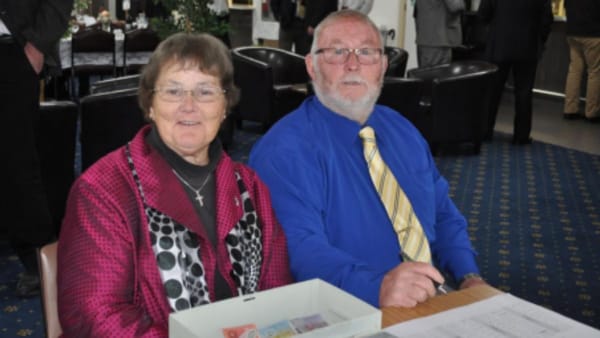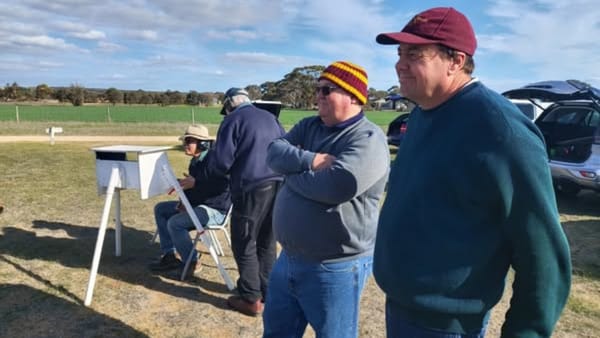‘I’m not going to allow fatigue to take everything from me’, stroke survivor declares
A Murray Bridge stroke survivor is participating in pioneering research into post-stroke fatigue.

This post about public health is free to read. Your support helps Murray Bridge News tell important local stories – subscribe today.

Dave Flood, a counsellor in Murray Bridge, is part of a research project that is developing a fatigue “protect-o-meter” – a tool to reduce stroke survivors’ fatigue and improve their recovery and quality of life.
Mr Flood had a stroke in June 2019, which gave him hazy vision and a mild headache at the time.
At first, doctors didn’t recognise the stroke and sent Mr Flood to an optometrist to get his vision tested.
But later medical tests revealed that Mr Flood had indeed suffered a stroke – one that changed his life in a big way.
Along with ongoing mild vision loss, Mr Flood experiences chronic levels of fatigue, something which affects more than half of all stroke survivors.
“For any level of concentration, an hour is manageable, but multiple hours will wreck me,” he said.
“If I push myself too hard, it can wipe me out for two or three days, where I’m just sitting on the lounge watching TV.”
These levels of fatigue have had a huge impact on Mr Flood’s work as a counsellor, work which he loves.
“In terms of work capacity, I’m at 25 per cent – that’s the most I can manage,” he said.
“I’m very conscious that I book for less than I manage, so I can do it well.
“Resting definitely helps, and planning my time and breaks helps.”
Mr Flood employs such strategies for his work and leisure, and he’s hoping that sharing his insights through the Protectometer project can help fellow stroke survivors.
The Protectometer tool being developed uses a co-design process that incorporates the needs and wisdom of the stroke survivors themselves but does not yet have a definite form.
According to the principal researcher for the project, Dawn Simpson from the University of Newcastle, the final form of the tool will depend on what stroke survivors say they want from it.
“The tool is based on the persistent pain model – a book – but as the stroke survivors prefer more of an online approach, it could be a book, a website or an app,” she said.

Mr Flood wants the Protectometer to help him manage his fatigue to have a more meaningful life.
“I want to engage with my life as much as possible,” he said.
“Because I get tired from doing stuff, it almost makes you feel like you’re sidelined in your own life.
“It comes down to how … I live life to the best of my ability despite the challenges, and in a lot of ways, the tool will help with this.
“I’m not going to allow fatigue to take everything from me.”
The Stroke Foundation awarded the research project $79,944 as part of the 2023 Stroke Foundation Research Grants.
- More information: Visit strokefoundation.org.au or stroke.org.au.
Know the signs of stroke
If you suspect someone may be having a stroke, think FAST:
- Face – has it drooped?
- Arms – can they raise them?
- Speech – is it slurred or confused?
- Time is critical
If you see any of the above signs, call an ambulance on 000.
Your support helps Murray Bridge News tell important local stories – subscribe today.





